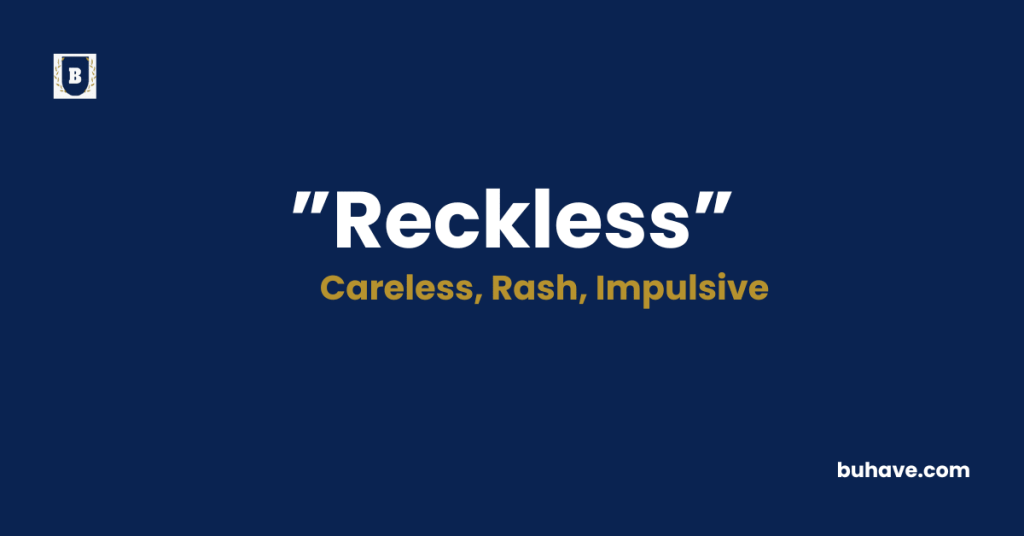The word “Reckless” (adjective) describes someone or something that acts without thinking about the consequences, often in a way that is dangerous or careless. In this guide, you’ll learn the full definition, synonyms, antonyms, etymology, and real-life examples of how to use Reckless correctly in sentences.
Reckless Explained in Depth
A complete and detailed guide to the word Reckless including meaning, definition, examples, etymology, synonyms, and antonyms.
Meanings of Reckless
Reckless means acting without care, caution, or consideration of the consequences. It implies a disregard for safety, responsibility, or potential risks involved in one’s actions.
Definition
Reckless refers to behavior or actions that show a lack of thought about danger or the effects on others. It suggests irresponsibility and often results in harm or undesirable outcomes.
Etymology
The word reckless comes from Old English reccelēas, from reccan meaning “to care” and -lēas meaning “without.”
It literally means “careless” or “without concern,” and has retained this sense throughout its usage in English.
Example Sentences
- He made a reckless decision that endangered everyone involved.
- Driving at high speed in a residential area is extremely reckless.
- Her reckless spending habits left her deeply in debt.
Reckless Synonyms
- Careless
- Irresponsible
- Impulsive
- Thoughtless
- Rash
- Foolhardy
- Wild
- Unthinking
- Heedless
- Hasty
Reckless Antonyms
- Cautious
- Careful
- Prudent
- Responsible
- Thoughtful
- Considerate
- Wise
- Deliberate
- Mindful
- Safe
FAQs about Reckless
Here are some Frequently Asked Questions (FAQs) about the word “Reckless”
1. What does “reckless” actually mean?
It means acting without thinking about consequences, often in a way that is dangerous or careless.
2. Is “reckless” always a negative word?
Yes, it usually implies harmful or irresponsible behavior and is generally considered negative.
3. Can a person be described as reckless?
Yes, a person who often takes unnecessary risks or ignores potential dangers can be called reckless.
4. Is “reckless” the same as “daring”?
Not exactly. “Daring” suggests bravery, while “reckless” implies carelessness and disregard for consequences.
5. Can “reckless” apply to financial behavior?
Yes, for example, spending without planning or investing in risky ventures can be called reckless behavior.

















